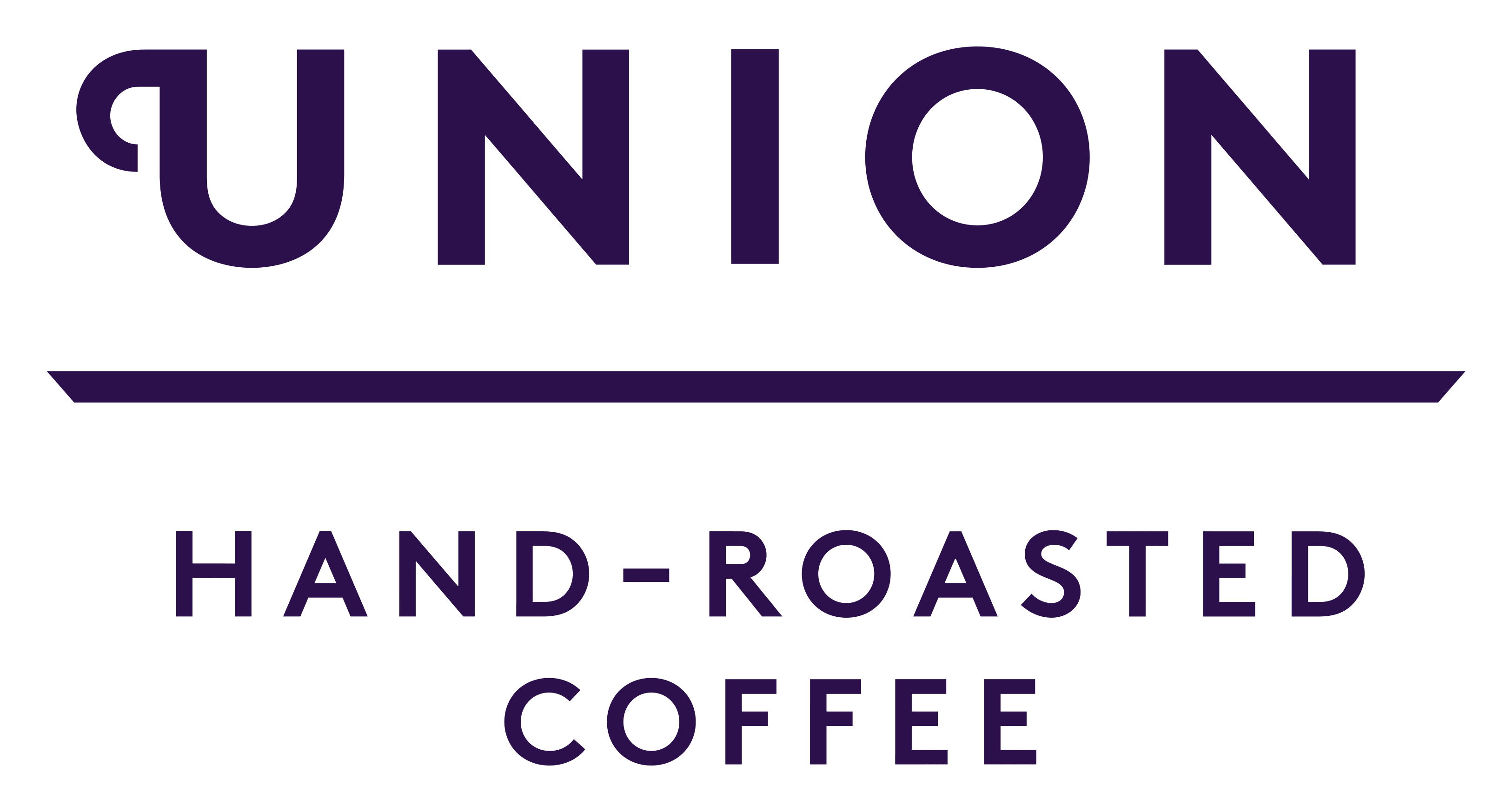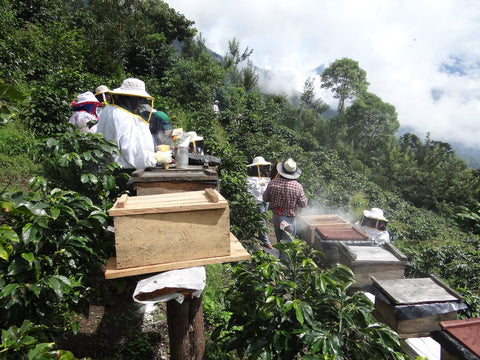First Published - March 17, 2014
As an artisan speciality coffee roaster, primarily we seek very high-quality coffee from reliable and consistent producers sourced according to our code of conduct for ethical sourcing. This encompasses working conditions that achieve International Labour Organization standards and evidence that environmental pollution on the farm is minimized. In return, the farmers who produce our green coffee need regular and reliable orders and prompt payment for their coffee.
The Fairtrade programme definitely set the tone for socially sustainable coffee. The theory behind Fairtrade is that producers are provided with a safety net, a guaranteed minimum price for their coffee.
The one thing that is never really mentioned by Fairtrade is quality, which is completely at odds with what the discerning coffee drinker wants – a great tasting cup.
At Union Hand-Roasted Coffee we have developed an initiative, which we call ‘Union Direct Trade’ that is based on excellence and ethical trade. Crucially, the model recognizes quality as the key to commercial success and we inspire farmers to focus on increasing quality for a better price, not quantity for a minimum price.
Why does our Union Direct Trade Model matter?
In 2012, 430,000 metric tons of Fairtrade certified coffee was produced, but only 30% was sold under Fairtrade conditions. Despite investment in certification, farmers would only receive the baseline commodity prices for the remaining 70% of their crop.
World markets will always limit positive social impact from a coffee value-chain that is founded on the basis of Fairtrade certification. In 2013 the average world market price for Colombian Mild Arabica was USD$1.48/lb. which is 8cents/lb greater than the Fairtrade minimum price, not including the optional 20c social premium.
Union is a roaster and importer and we paid at least double the Fairtrade base during 2013 as the farm gate price to producers. For some of our coffees we pay prices achieving ten times above the Fairtrade price. If it tastes delicious, we want that coffee.
In consuming countries, Fairtrade justifies a minimum price standard by persuading consumers that they are helping poor producers. This is achieved through marketing campaigns which requires significant investment.
We believe that a more sustainable approach, which benefits both the coffee farmer and coffee drinker, would be to develop a model based on quality, accessible to all farmers and not limited to the Fairtrade model which only operates with Co-operatives. Such an approach would encourage innovation, growth and economic progress by rewarding excellence.
Why is there a need for a focus on quality?
A farmer who produces high quality coffee and has the capacity to evaluate the quality he has produced will know how to assess what a buyer like Union is looking for and that farmer will have a stronger negotiation position compared to a farmer who trades on “ethical value added” alone.
Paying farmers more money for their coffee should not be about charity – it should be a way to reward and ensure the quality of the coffee and the circumstances under which it is produced and processed. Paying for high quality and ethics, instead of ethics alone is a way to ensure sustainable prosperity for farmers.
Union Direct Trade
 Graciano Cruz, explains why he benefits from our Union Direct Trade approach
Graciano Cruz, explains why he benefits from our Union Direct Trade approach
‘Union Direct Trade’ is based on coffee excellence and ethical trade, allowing farmers to trace their coffee as it moves upstream in the value chain. We encourage farmers to think about, and ask, questions like: ‘Who roasts my coffee? Who drinks my coffee? What price is my coffee sold in the UK?’ Many farmers in the world would not even know what country their coffee is sold to, let alone who roasts and drinks it. Likewise, many roasters in the world do not know where their specialty coffee comes from; which country or region, let alone which farm.
Looking at it from a farmers’ point of view, do you want people to buy your coffee because you are labeled as someone who is poor? Or because they enjoy drinking it and they appreciate the delicious flavours?
Even though the concern for ethical practices is as important as quality, the selling point of coffee should be centered on high quality. Consumers might buy a cause-related product once, but if it doesn’t taste great, in the long run, they will return to what they actually want to drink or eat.
Our Union Direct Trade model, with a focus on traceable and delicious tasting coffees brings responsibility for consumer, roaster and farmer. This approach is certainly not an easy way for us to source our coffee, as it requires our presence in the field almost throughout the year working with farmers. And it also introduces complexities trying to explain our trading approach to consumers.
The goal of Union Direct Trade is to maintain our engagement in long-term sustainable relationships with producers. Farmers and roasters should be friends and collaborate. And to achieve this we must share goals and visions. If not, the relationship becomes co-ordination, or co-operation which is driven by one party. Driven by one party it will most likely serve the needs of just one party.
Huehuetenango, Guatemala – an example of a successful non-Fairtrade certified Co-operative
IMAGE MAP LOCATION
Iliana Martinez has been the driving force behind many of the positive developments we’ve observed with the coffee producers we source from in Huehuetenango, Guatemala. Iliana oversees the production, quality and exportation of the coffee produced by 216 small coffee producers of Esquipulas, located in the highlands of Huehuetenango. We have seen this cooperative strengthen, and increase yields of higher quality coffee over the past few years.
For us, this cooperative is a good example of a non-Fairtrade Co-operative that invests significantly in its community. If we take Coffee Leaf Rust disease as an example; this disease causes coffee trees to lose their leaves, resulting in fewer beans and inferior quality. It is estimated that 70% of the coffee crop in Guatemala has been blighted. However, Esquipulas has been able to reinvest profits in its farmers and in 2013 created a Coffee Rust plan to mitigate from the effects of the disease. The cooperative provided members with agricultural tools such as fertilizer and protective equipment for the farmer. The results are highly noticeable when comparing their healthy farms against their disease stricken neighbours who are not members of the Co-operative.
Besides investing in quality and good agricultural practices, the cooperative has worked on improving the socio-economic circumstances of its family members. When we started working with this cooperative in 2009, they were trying to extricate from an unhealthy trading relationship with other buyers. Today, they can proudly say that export volumes have increased 2.5 times since 2009, and they have established sustainable prices for their coffee – at an average of double the Fairtrade minimum price.
Understanding our trading initiative will require extra effort from consumers compared with buying a pack of coffee with a succinct logo; but we think it’s more effective for the farmer and more pleasurable for the customer.
Pascale Schuit
Union Sustainable Relationship Manager



